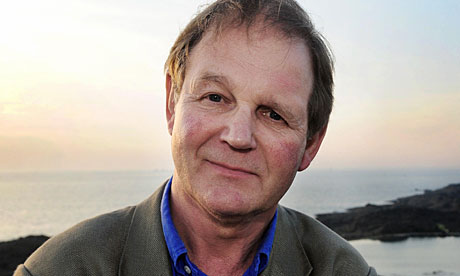
"The beginning of the story came from an image I saw in an exhibition. It was a photograph of a dead Argentinian soldier, lying among rocks on the Falkland Islands. It struck me hugely as here is this windswept landscape and this man lying there and from the look of him he was young, and I thought then that that was happened to so many of their soldiers - and ours as well.
These days I do tend to think that there are other ways of sorting out disputes, and this image moved me, upset me and made me angry. You could see it was a waste of a young life. It was well post-Falklands, it must have been in the 1990s, and I thought that we tend to write about ourselves, particularly in conflict. We tend to be one-sided, we concentrate on the side we know. And I thought, let's look this from an Argentinian point of view: what would it be like to be a man living a normal life in Argentina and being called up and finding yourself in that place? I wanted to look at the ordinary lives of these soldiers and what happens when they are thrust into conflict. I have written about it before, including in War Horse, and here was another conscript army sent out to do a job, admittedly in this case for an unpleasant dictator. This man was a victim as much as any of the other victims.
Children know very little about this war now. When anniversaries come around it goes on TV but it has passed quite quickly into history. We are focused on Afghanistan now, and coffins coming home from there, though we are focused less on what happens to the enemy – when you are in the middle of a conflict you tend to concentrate on your own. Children do understand that there is loss and suffering and grief, they have a very strong sense of fair play and they know about suffering and can empathise, sometimes better than adults do. As we get older we cover ourselves with our prejudices but children have clear eyes and clear hearts and can respond to grieving on both sides.
I recently wrote a story about the bombing of Dresden – to persuade me to think about it. The people there were as ordinary as we are, they had their breakfast in the morning, just the same sort of lives as we had and they went through the suffering of Dresden. It's good to focus on the universal suffering that goes on in any war. Whatever the right and wrongs of the war, there is always universal suffering."
Letter for Carlos is from the anthology Singing for Mrs Pettigrew. You can read the whole of Letter for Carlos here.

